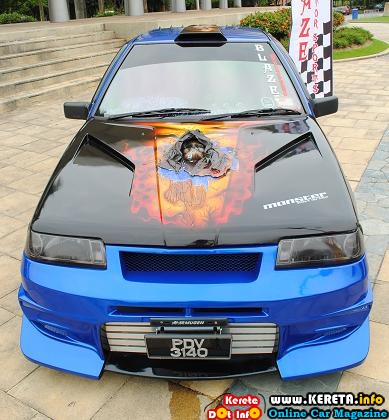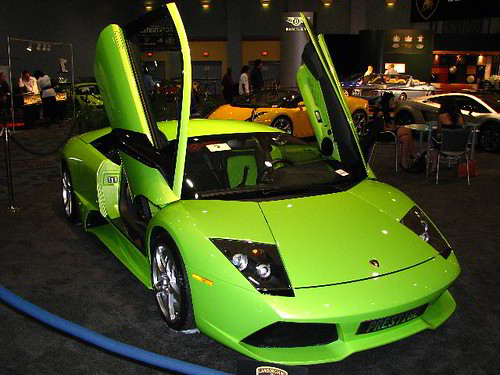|
|
|---|
Sunday, July 19, 2009
Electric cars, Batteries, Lithium: Automakers seek battery ties as cars go electric TNR.v, CZX.v, SQM, FMC, ROC, DAI, NSANY, F, TM, TTM, BYD, GOOG,
Posted by andre at 4:48 AMNext Big Thing means tough competition on pricing in the end product - Electric cars, the most lucrative business for a while will be batteries. Now auto makers are securing their say in battery makers and they in turn will move to secure Lithium Supply.
"Normal investment cycle will include money flowing into new play - this time Lithium, into companies like SQM, ROC and FMC first and then they will move down the food chain. What will be the M&A targets of new Bull?"
China is moving ahead in Lithium and REE space as usual:
"It is a ground breaking milestone for both Juniors involved: value network in action. TNR Gold has attracted interest from Canada Zinc Metals and its shareholders including Chinese Tongling and Lundin mining with opportunities opened in Lithium and REE market."
"By Chang-Ran Kim and Kiyoshi Takenaka - Analysis
TOKYO (Reuters) - Rechargeable batteries could become the core technology for the auto industry if pure electric cars enter the mainstream -- a prospect that has carmakers racing to team up with battery makers.
Auto executives say that with fewer moving parts, easy-to-assemble electric cars may also lower the bar for entry into the cut-throat autos industry and make battery manufacturers the unlikely competitors for car giants.
"I've said for years that Toyota's rival will be Hitachi," said Kenichiro Senoo, a professor at the Research Center for Advanced Science and Technology at the University of Tokyo.
"Or that in 2016, you'd be able to buy a car assembly kit in Akihabara," he said, referring to Tokyo's famous electronics shopping district.
Already, China's battery maker-cum-automaker BYD Co has entered the scene, bad news for automakers whose expertise lies in the complex task of fitting together thousands of components into a safe and reliable vehicle.
Some see the shift to electric cars turning the auto industry into something resembling the PC sector, where Intel Corp and Microsoft Corp, which supply key devices across PC brands, take the lion's share of the industry profit.
Firms such as Panasonic Corp and Hitachi Ltd, which have the core technology to make batteries, could be the Intels and Microsofts of the auto industry of the future.
Japanese electronics conglomerate NEC Corp plans to raise around $2 billion and use some of that money in growth areas such as lithium-ion batteries, a source and the Yomiuri newspaper said on Friday.
LINKING UP
Lithium-ion batteries are seen as the most practical option available now for electric vehicles as they have the higher energy density required to feed the electric motors that power the car instead of an engine.
To avoid being sidelined, top automakers are looking to tie up with battery giants to have a say in developing batteries that still face cost and safety hurdles for commercial viability.
Most hybrid cars use nickel-metal hydride batteries, which store less energy.
Early movers such as Toyota Motor Corp, Nissan Motor Co and Mitsubishi Motors Corp have set up joint ventures to produce batteries with Panasonic, NEC and GS Yuasa Corp, respectively.
"When we were doing the research for electric vehicles (EVs), we believed we needed to have the core battery technology in-house," said Andy Palmer, senior vice president and head of product planning at Nissan, which wants to be the world's first automaker to mass-market zero-emission electric vehicles in 2012.
"That was a strategic decision we chose to make. If Nissan is right ... and zero-emissions is the future, then we've ensured that future by having that technology."
The Nissan-NEC venture is looking to sell its lithium-ion batteries widely in a move some say resembles an open structure that Intel succeeded with.
Not to be left behind, Volkswagen AG has sealed non-equity battery partnerships with Japan's Sanyo Electric Co and Toshiba Corp.
Europe's top automaker said in May it would explore options for a third partnership, with China's BYD, which already has the endorsement of Warren Buffett's Berkshire Hathaway.
Daimler AG now has a 6 percent stake in Tesla Motors Inc, a California start-up that has used its battery technology to create high-performance sports cars under its own brand.
In danger of falling through the cracks is Honda Motor Co, which formed a late venture this year with Mitsubishi Motors partner GS Yuasa limited to batteries for hybrid cars.
Honda has dismissed electric cars as a short-range compromise, betting instead on hydrogen fuel cell vehicles as the zero-emission option to ultimately replace today's cars.
Absent from the growing list of tie-ups are U.S. automakers General Motors, Ford Motor Co and Chrysler, which have little cash to spare.
Toyota is going even further by researching, without the involvement of partner Panasonic, an advanced battery that it hopes would beat lithium-ion batteries in performance and cost.
Panasonic, for its part, is in the process of acquiring Sanyo, while SB LiMotive, a battery venture between South Korea's Samsung SDI and Germany's Robert Bosch, is buying U.S. battery maker Cobasys.
BUMPS AHEAD
While batteries could take center stage in the world of electric cars, it's not all doom for automakers. The rigorous testing involved in ensuring safety is an area where battery makers trail automakers.
"I think electronics makers can probably make cars if they buckle down to it," said Mitsuru Homma, executive vice president of Sanyo, the world's largest rechargeable battery maker.
"But electronics companies are miles behind automakers when it comes to awareness of safety and product liability concerning vehicles, and the technological know-how on the whole process of auto-making. Some things are best left to the experts," he said.
Succeeding in the auto industry also requires brand power, competitive sales channels and services, and expertise in parts integration, analysts said.
That probably means few battery giants, which also include South Korea's LG Chem Ltd, Hitachi and A123 of the United States, are likely to go down the same road as BYD.
"If consumers are happy with that level of crudeness, then maybe BYD has a chance," a top executive at a Japanese automaker said.
"But there's something to be said for building a sophisticated, fun-to-drive car, and that takes experience."
(Additional reporting by Nobuhiro Kubo; Editing by Valerie Lee)"
TOKYO (Reuters) - Rechargeable batteries could become the core technology for the auto industry if pure electric cars enter the mainstream -- a prospect that has carmakers racing to team up with battery makers.
Auto executives say that with fewer moving parts, easy-to-assemble electric cars may also lower the bar for entry into the cut-throat autos industry and make battery manufacturers the unlikely competitors for car giants.
"I've said for years that Toyota's rival will be Hitachi," said Kenichiro Senoo, a professor at the Research Center for Advanced Science and Technology at the University of Tokyo.
"Or that in 2016, you'd be able to buy a car assembly kit in Akihabara," he said, referring to Tokyo's famous electronics shopping district.
Already, China's battery maker-cum-automaker BYD Co has entered the scene, bad news for automakers whose expertise lies in the complex task of fitting together thousands of components into a safe and reliable vehicle.
Some see the shift to electric cars turning the auto industry into something resembling the PC sector, where Intel Corp and Microsoft Corp, which supply key devices across PC brands, take the lion's share of the industry profit.
Firms such as Panasonic Corp and Hitachi Ltd, which have the core technology to make batteries, could be the Intels and Microsofts of the auto industry of the future.
Japanese electronics conglomerate NEC Corp plans to raise around $2 billion and use some of that money in growth areas such as lithium-ion batteries, a source and the Yomiuri newspaper said on Friday.
LINKING UP
Lithium-ion batteries are seen as the most practical option available now for electric vehicles as they have the higher energy density required to feed the electric motors that power the car instead of an engine.
To avoid being sidelined, top automakers are looking to tie up with battery giants to have a say in developing batteries that still face cost and safety hurdles for commercial viability.
Most hybrid cars use nickel-metal hydride batteries, which store less energy.
Early movers such as Toyota Motor Corp, Nissan Motor Co and Mitsubishi Motors Corp have set up joint ventures to produce batteries with Panasonic, NEC and GS Yuasa Corp, respectively.
"When we were doing the research for electric vehicles (EVs), we believed we needed to have the core battery technology in-house," said Andy Palmer, senior vice president and head of product planning at Nissan, which wants to be the world's first automaker to mass-market zero-emission electric vehicles in 2012.
"That was a strategic decision we chose to make. If Nissan is right ... and zero-emissions is the future, then we've ensured that future by having that technology."
The Nissan-NEC venture is looking to sell its lithium-ion batteries widely in a move some say resembles an open structure that Intel succeeded with.
Not to be left behind, Volkswagen AG has sealed non-equity battery partnerships with Japan's Sanyo Electric Co and Toshiba Corp.
Europe's top automaker said in May it would explore options for a third partnership, with China's BYD, which already has the endorsement of Warren Buffett's Berkshire Hathaway.
Daimler AG now has a 6 percent stake in Tesla Motors Inc, a California start-up that has used its battery technology to create high-performance sports cars under its own brand.
In danger of falling through the cracks is Honda Motor Co, which formed a late venture this year with Mitsubishi Motors partner GS Yuasa limited to batteries for hybrid cars.
Honda has dismissed electric cars as a short-range compromise, betting instead on hydrogen fuel cell vehicles as the zero-emission option to ultimately replace today's cars.
Absent from the growing list of tie-ups are U.S. automakers General Motors, Ford Motor Co and Chrysler, which have little cash to spare.
Toyota is going even further by researching, without the involvement of partner Panasonic, an advanced battery that it hopes would beat lithium-ion batteries in performance and cost.
Panasonic, for its part, is in the process of acquiring Sanyo, while SB LiMotive, a battery venture between South Korea's Samsung SDI and Germany's Robert Bosch, is buying U.S. battery maker Cobasys.
BUMPS AHEAD
While batteries could take center stage in the world of electric cars, it's not all doom for automakers. The rigorous testing involved in ensuring safety is an area where battery makers trail automakers.
"I think electronics makers can probably make cars if they buckle down to it," said Mitsuru Homma, executive vice president of Sanyo, the world's largest rechargeable battery maker.
"But electronics companies are miles behind automakers when it comes to awareness of safety and product liability concerning vehicles, and the technological know-how on the whole process of auto-making. Some things are best left to the experts," he said.
Succeeding in the auto industry also requires brand power, competitive sales channels and services, and expertise in parts integration, analysts said.
That probably means few battery giants, which also include South Korea's LG Chem Ltd, Hitachi and A123 of the United States, are likely to go down the same road as BYD.
"If consumers are happy with that level of crudeness, then maybe BYD has a chance," a top executive at a Japanese automaker said.
"But there's something to be said for building a sophisticated, fun-to-drive car, and that takes experience."
(Additional reporting by Nobuhiro Kubo; Editing by Valerie Lee)"
Subscribe to:
Post Comments (Atom)
















0 comments:
Post a Comment